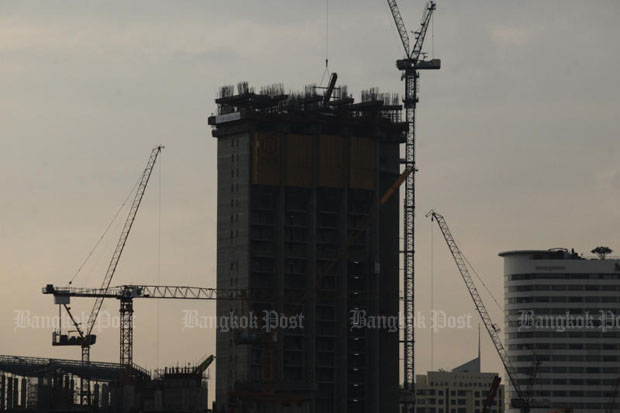
Private investment growth is expected to pick up in the second half of 2017, helped by a strong recovery for exports, says the Bank of Thailand.
Thailand saw a contraction in private investment in the first quarter of 2017.
"A more robust recovery in merchandise exports is expected to drive private investment growth in the country in the second half of this year," said Mathee Supapongse, deputy governor overseeing monetary stability at the central bank.
But growth in private investment in the second half will be underwhelming because excess capacity remains in a number of sectors, he said.
"Even though private investment contracted in the first quarter of this year, the results are better than what we had expected," Mr Mathee said.
The National Economic and Social Development Board (NESDB) reported that private investment contracted 1.1% in the first quarter of 2017, worse than the 0.4% contraction seen in the fourth quarter of 2016.
The NESDB also slashed its private investment outlook to 2% growth for this year from its previous forecast of 2.5%.
Mr Mathee said the Bank of Thailand now expects private investment to grow by 2.4% in 2017, up from the 0.4% growth recorded in 2016.
He said a strong recovery in private consumption is also expected to help accelerate private investment for the remainder of the year.
In addition, the reduction of banks' borrowing rates could partly support investment for small and medium-sized businesses. But the main factor remains the government's policies.
The Bank of Thailand expects 3.4% GDP growth in 2017 and 3.6% in 2018.
Governor Veerathai Santiprabhob said private investment is a crucial economic engine that will require close monitoring by the central bank this year, as it has lagged in comparison with other engines.
Meanwhile, Kalin Sarasin, chairman of the Thai Chamber of Commerce, said yesterday that the chamber forecasts the Thai economy to grow 3.5-4% this year, citing the global trade recovery, higher exports and the government-initiated public-private partnership scheme.
The private sector's concerns about US President Donald Trump's protectionist trade policies have also eased after a recent surprise phone call from US President Donald Trump to Prime Minister Prayut Chan-o-cha and subsequent invitation to the White House.
The phone call signalled closer ties and showed to some extent US acceptance of the Thai government, Mr Kalin said.
"The government's efforts, particularly through the Pracha Rat public-private collaborative initiative, will also play a key role in bolstering private [sector] confidence and creating a positive climate to tackle the country's economic issues," he said.